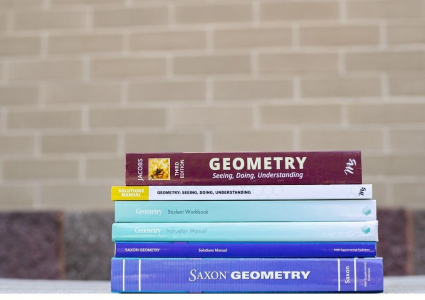3 Ways to Balance Grace & Accountability During Covid

I don’t know anything about Covid. I gave up trying to know too much about Covid sometime in the summer. Each time I thought I knew something, it turned out to be false. I do listen to a lot of people who know more about Covid and infectious diseases. One of them is Dr. Michael Osterholm. He is the head of the Center for Infectious Disease Research and Policy or CIDRAP. He sometimes refers to doing things during Covid as, "planting petunias during a hurricane.” Working in education during Covid causes that phrase to make sense. During this challenging time, I have witnessed the impact of the pandemic on teachers, families, and students. Here are a few quick ways to show grace while, when possible, continuing to move the educational ball forward, during this time.
1. Remember that your students need the grace and encouragement that you know that you need
First, as adults, this time can be a stressful time. We worry about the future, how to be safe, how to protect others, and, maybe, how we are going to pay the bills. This means stress. Over time stress wears people down. Children often are not thinking about the bills or the future, but I have watched as the pandemic has impacted them.
In some ways, it impacts them more than adults. Thankfully, younger people are not often impacted by Covid severely. They can be, but statistically, they are not at as high a risk as older people. Still, the pandemic impacts them as they see their relationships become more distanced (mediated by technology). They feel the stress of adults worrying about their livelihood. They worry about the health of their grandparents. They see so many things that they anticipated being categorized as non-essential. They despair as sports seasons, winter dances, and Christmas parties are postponed, canceled, or avoided.
As teachers and parents, remember that all the grace you need and wish that others were showing to you is also needed by your students. It might be needed even more by them because they don’t have the maturity of an adult. Show them understanding. Challenge yourself, even when you are worn down, to be there for them and to be what an adult often needs to be during these times: a listener, an encourager, and someone who sympathizes with their suffering.
2. Clarity must come before Accountability
It is so tough for teachers when students don’t get work in on time or when there is confusion over responsibilities and assignments. Often, teachers want (and really need) students to take more responsibility for their work during times like this. Remember, however, that clarity must precede accountability. During times of disruption and change, it is easy to get things out of kilter. It is easy to forget. It is always good to start the year with a clear policy and consequences for things like late work. These should always be consistent with the policies of your school.
At points during Covid, things might get so disrupted for a student or family that your policies might need to be adjusted. If you are on a faculty, make sure that you do this in a way that is consistent. If you are an administrator, however, I would encourage you to give your teachers the ability to be flexible within boundaries. They will often make better calls than you because they are closer to the situation. This flexibility still needs guidance and if the flexibility just leads to constant “one-off” conversations with administrations, then tighter boundaries might be needed. When you have clarity and show charity, there is room then to hold the line with grace, but also firmness.
3. Prioritize and Economize
Pandemics and disruptions are helpful in many ways. They cause us all to ask questions about risk, priority, and importance. If your academic work in general or the academic work of one of your students gets disrupted significantly, you need to start asking questions about priority and necessity. We have a rule at Veritas Academy, that you must have 10 grades for any grade that shows up on a semester or quarter report card. Often, particularly in grammar school, we have 50 or 60 grades in some subjects. During disruption for a student, we allow teachers along with academic administrators to alter patterns of grading to get a student caught up. This does not mean that the work that they are omitting has no value (if it actually has no value, then you should get rid of it for all students), instead, it signifies that getting the student caught up and on pace to move forward has a higher value and will provide a greater benefit than the work that is omitted.
Again, no one likes “planting petunias during a hurricane". Some days it feels like you accomplish little or nothing, except feeling exhausted. Remember, we will get through this together and we trust in a God who was not caught off guard by this pandemic or any other challenge we face. Show grace and kindness to your students; remember that clarity must come before accountability; and, remember that this is a time where it will be necessary to prioritize work and possibly omit some work that is less essential. At the end of this time, we might even find that we have learned much during the pandemic and that we actually planted a few petunias in spite of the challenges.






